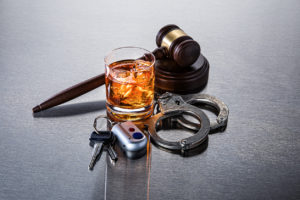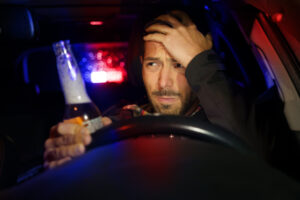Key Points:
- Proving Intoxication: In DUI cases, lawyers must demonstrate the driver’s intoxication to seek compensatory and punitive damages, which can significantly increase the settlement.
- Evidence Critical for Success: Effective DUI claims depend heavily on robust evidence of intoxication to secure favorable legal outcomes.
- There are numerous forms of evidence that can prove a DUI. These include blood, medical, police or toxicology reports, video, photo, and more.
Car accidents are already traumatic events, but the shock is compounded when the cause is a drunk driver. Despite extensive public awareness campaigns designed to deter drunk driving, these preventable accidents still occur. DUI accident lawyers, who focus on personal injury, are committed to holding negligent drivers and their insurance companies accountable. The goal in these legal actions is not only to seek justice by proving intoxication but also to obtain a higher compensation for the victims.
In the legal world, securing a successful outcome hinges on evidence. Establishing the facts of the case requires clear and compelling proof of the driver’s intoxication. Without such evidence, the claims may lack the credibility necessary to win a favorable settlement. Lets explore the critical types of evidence that can substantiate a DUI accident claim, enhancing your chances of achieving the rightful compensation.
Standard Car Accidents Vs. DUI Car Accidents – What Does a Car Accident Lawyer Need to Prove?
In a standard car accident, a personal injury lawyer must establish two key points: (1) the fault or negligence of the other driver, and (2) the extent and cost of the injuries and damages sustained.
In the case of a DUI car accident, the lawyer has an additional burden of proof. Besides proving the standard elements, they must also demonstrate (3) the intoxication of the driver involved. Although failure to prove intoxication doesn’t preclude the accident victim from receiving compensation, it is essential for claiming punitive damages, which can significantly increase the settlement amount.
What Are DUI Accident Lawyers Looking For When Reviewing Possible Evidence Proving a DUI?
When evaluating potential evidence, DUI injury lawyers focus on identifying any behaviors that deviate from those expected of a sober individual. Signs of erratic behavior are often indicative of intoxication. This includes not only footage of the driver’s behavior inside or outside the vehicle but also recordings showing unusual vehicle movement that might suggest the driver’s impairment.
Once DUI injury lawyers pinpoint any evidence of abnormal or intoxicated behavior, their next step is to verify the reliability and accuracy of this evidence. For instance, if a witness claims to have observed the driver appearing intoxicated, the lawyers will investigate further to ensure the witness’s account is trustworthy. If it turns out the witness did not actually see the event and is fabricating their story, the lawyers will disregard this evidence as it lacks credibility.
Can a Toxicology Report Be Used to Prove a DUI Accident?
A toxicology report is a detailed analysis used to detect the presence and concentration of alcohol, drugs, and other chemicals in a person’s body, typically through blood, urine, or breath tests. These reports are commonly employed following reckless driving incidents to determine if intoxication contributed to the accident, making them a standard procedure in DUI investigations.
DUI injury lawyers can access these reports through legal requests, court orders, or directly from law enforcement as part of the police investigation. As critical evidence in DUI cases, toxicology reports provide a scientifically accurate measure of the driver’s blood alcohol concentration (BAC) or the presence of drugs at the time of the accident. This evidence is crucial for establishing the driver’s impairment and liability in court, impacting decisions on penalties and compensation claims.
Can Body Cam Footage be Used to Prove a DUI Accident?
Body cam footage, captured by cameras worn by law enforcement officers, is increasingly utilized to document interactions during traffic stops and after reckless accidents. This footage is pivotal in DUI cases as it provides real-time evidence of the driver’s condition immediately following an incident. DUI injury lawyers can access this footage through the discovery process, public records requests, or subpoenas, depending on the jurisdiction. Crucially, the footage can vividly demonstrate a driver’s impairment by capturing their speech, balance, and coordination, as well as any field sobriety tests conducted, making it a powerful tool in court to establish intoxication and support legal claims in DUI accidents.
Can any Video Evidence of the Accident Be Used to Prove a DUI Accident?
Video evidence from dashcams, surveillance systems, and bystander recordings is increasingly crucial in reconstructing reckless accidents and proving DUI cases. This footage, which shows real-time events at the accident scene, can be obtained by DUI injury lawyers through direct requests, the discovery process, or subpoenas. It is particularly effective in demonstrating a driver’s intoxication by visually capturing erratic driving behaviors and the driver’s physical condition post-accident. Such evidence is invaluable for establishing the driver’s impairment and supporting legal claims in DUI accidents.
Can Slurred Speech Caught on Video Be Used as Evidence in a DUI Accident Claim?
Yes, slurred speech caught on video can be used as evidence in a DUI accident claim. This type of evidence is compelling because it provides a direct and observable indication of impairment. When a driver’s speech is captured on video—whether from police body cams, dashcams, or bystander recordings—showing signs of slurring, it can significantly demonstrate intoxication at the time of the accident.
Can Open Containers in a Vehicle Be Considered Evidence for a DUI Injury Case?
Open containers in a vehicle, which refer to any unsealed or partially consumed alcoholic beverages, are commonly examined after reckless accidents to indicate recent alcohol consumption. DUI injury lawyers often gather evidence of open containers through police reports, photographic evidence from the scene, and witness testimony. While not direct proof of a driver’s intoxication, the presence of open containers supports claims that the driver was likely drinking before or during driving. This circumstantial evidence, especially when combined with other signs of intoxication like erratic driving or positive BAC tests, can significantly strengthen a DUI injury case.
Can Social Media posts showing alcohol consumption prior to the accident be introduced as evidence?
Social media posts showing alcohol consumption before an accident can serve as evidence in DUI accident cases. These posts, which might include pictures, videos, or status updates of the driver drinking before the crash, need to be verified as authentic and relevant. Legal teams ensure these posts are truly from the driver and match the timeline leading up to the accident. This kind of evidence is strong in court because it supports other evidence such as eyewitness testimonies or toxicology reports, further proving the driver’s irresponsibility and intoxication at the time of the accident.
Can Police Reports Be Used as Evidence in a DUI Accident Claim?
Yes, police reports are pivotal as evidence in DUI accident claims. These documents provide a formal account of the incident, including the responding officers’ observations on the driver’s condition, signs of intoxication, and the results of any field sobriety tests. Valued for their objectivity and timeliness, police reports help establish the essential facts of the case—such as location, timing, and immediate actions post-accident. They also contain critical observations about the driver’s behavior, like slurred speech or erratic driving, which are instrumental in proving impairment and liability, thus bolstering the claimant’s case for compensation.
Can the Blood Results Be Used as Evidence in a DUI Accident Claim?
Yes, blood test results are frequently used as evidence in DUI accident claims. These results provide a scientific measure of the driver’s blood alcohol concentration (BAC) or the presence of drugs at the time of the test, which is typically conducted soon after the accident. Such results are crucial because they offer concrete, quantifiable evidence of intoxication or drug use. DUI blood results must be collected and processed according to strict legal and medical standards to ensure their accuracy and the integrity of the chain of custody. When properly validated, these results can significantly strengthen a DUI accident claim, helping to establish the driver’s impairment and liability for the accident, thereby influencing the outcome in terms of penalties, compensation, and punitive damages.
Can any DUI Criminal Case Conviction Be Used as Evidence in a DUI Accident Claim?
Yes, a DUI criminal case conviction can be used as evidence in a DUI accident claim, particularly in civil lawsuits for damages resulting from the same incident. A criminal conviction for DUI can serve as compelling proof of the defendant’s liability in the civil case because it establishes that the defendant was legally determined to be under the influence at the time of the accident.
Can a Drivers History of DUI Convictions Be Used as Evidence in a DUI Accident Claim?
In Atlanta, a driver’s history of DUI convictions can indeed be used in civil DUI accident claims to establish a pattern of negligent behavior and prove liability. Additionally, Georgia law permits the use of these prior convictions when considering punitive damages, which aim to punish severe misconduct and deter future violations. The introduction of such evidence is contingent upon its relevance and the determination that it is not unfairly prejudicial.
Can Photos of the Accident Scene Be Used as Evidence in a DUI Accident Claim?
Yes, photos of the accident scene are crucial evidence in DUI accident claims. They document physical evidence such as vehicle positions, road conditions, and vehicle damage, which assists in reconstructing the accident and determining factors like speed and impact. Photos can also indicate signs of impairment, such as erratic driving patterns or the presence of alcohol containers, supporting claims of driver intoxication. Additionally, these images corroborate witness and responder testimonies, provide critical data for insurance assessments, and aid expert analysis. Overall, scene photos serve as impartial evidence that can significantly influence the outcome of legal proceedings and insurance claims related to DUI accidents.

 1201 West Peachtree Street #2339 Atlanta, GA 30309+1-770-212-3795$0-$100000
1201 West Peachtree Street #2339 Atlanta, GA 30309+1-770-212-3795$0-$100000I recently had to pleasure of working with Ashlei and Johnathan and they are both wonderful people to work with. So positive and energetic. They really know their stuff. Highly recommend.












